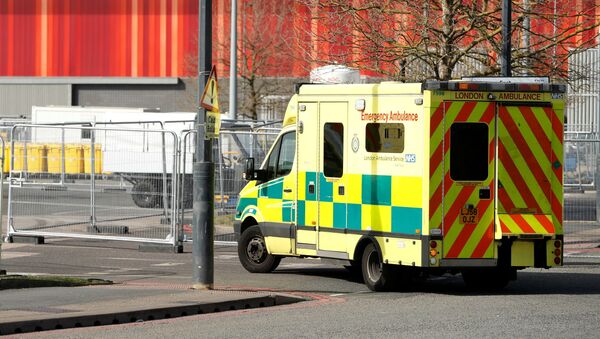Paul Komesaroff, Professor of Medicine at Monash University, reflects on the predicted death tolls in the UK and the US.
Sputnik: Just how likely are predictions of 66,000 UK deaths and 100,000 - 240,000 US deaths? Do you think that the UK and the US will experience these numbers?
Paul Komesaroff: It's impossible to say exactly what the numbers will be but we know that it's going to be bad, very bad, in both countries and that's largely because of the way in which the epidemic has been mishandled by governments in both countries. Whether it reaches the figures that you've mentioned in the UK, is really difficult to say, because the outcome will depend on a number of variables, which really can't be predicted. The key variables are what the extent of the public health response will be, how vigorously the government will respond and how will the population actually obey those restrictions. In the United States, I think it's an even more difficult situation if anything than in the United Kingdom because particularly what we're seeing in New York where the epidemic is completely out of control and there's widespread community transmission of the virus. It's really difficult to see how that's going to end there without there being at least 100,000 deaths. In the UK there are about 7000 deaths the moment. It's possible that will increase many-fold if the United Kingdom has a similar death rate to Italy or Spain, it will reach 20 or 30,000. If it goes higher than that it would be obviously a terrible tragedy for everyone involved.
Sputnik: How should ICUs and ventilators be prioritized in countries like the UK where resources, particularly ventilators are limited?
Paul Komesaroff: It's a very difficult and troubling question everywhere at the moment and it's not just ventilators - it's medical facilities in general. In the countries where death rates have skyrocketed that's largely been because the medical care facilities have been overwhelmed. The specific question that you raised is how we make a decision about who gets the scarce resources that's something that's been the subject of a very vigorous debate all over the world at the moment. In some places like Italy, specific criteria have been proposed such as people above a certain age won't necessarily receive medical care. In Australia, that's not the view that we favour. We feel that people shouldn't be discriminated against on the basis of age or other personal characteristics including whether they have a disability or some other specific medical condition. So, it's a really difficult question and there needs to be a public debate about it. Hopefully, ultimately people will be allocated the resources on the basis of need and there will be vigorous attempt to maximise the number of people who have access to care both by increasing availability of ICU beds but also by reducing the time they might need to be in that sort of treatment, introducing new treatments, and various other strategies that are being considered.
Sputnik: Looking to the future how should the UK and the US, two very different countries, respond to an increase in cases? Is there anything that the countries could do differently to stop deaths climbing?
Paul Komesaroff: The UK and the US are very different countries but they're the same in that the government's in both places really misjudged the nature of the crisis and lost precious time as a result of which the virus became active within the community and once that happens it's very different difficult to put the lid on the spread of the virus. That's the fundamental reason for the terrible disasters in these two countries. Essentially given the fact that we don't have an effective drug treatment for coronavirus at this stage and the vaccine is a long way away. Essentially, at this stage, they're really just two strategies. One is the prevention of spread and the other is supportive care for those who are already affected and prevention of spread is the key thing here. That's the lockdown itself, it's physical distancing, it's self-isolation, it's quarantine... All of those things are critically important and they must be taken to the maximum as quickly and rigorously as possible. If the government doesn't act and the population doesn't obey those restrictions then the outcome will be dire indeed.



